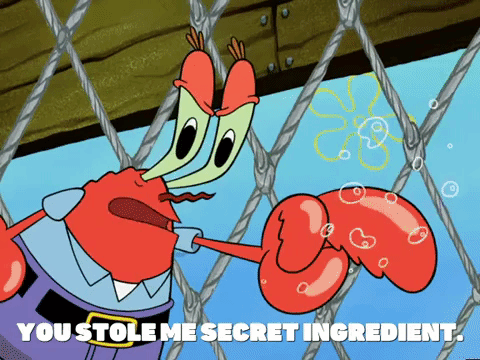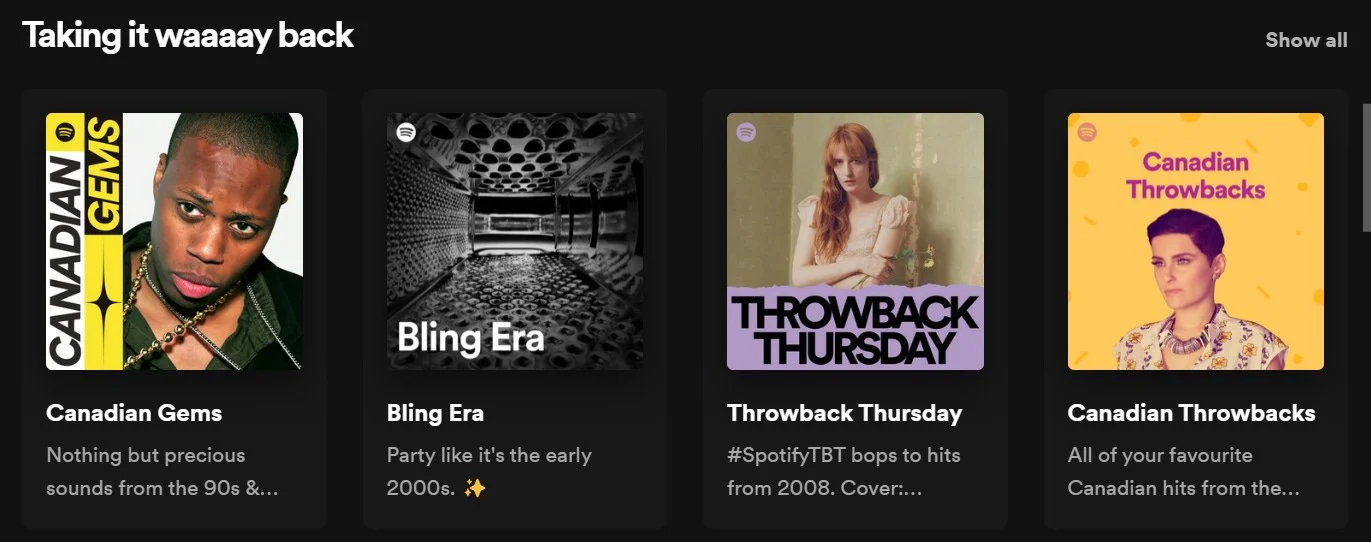How will Bill C-11 impact Canadian podcasts? - Pod the North: May 19, 2023
Should Canadian podcasters care about the Online Streaming Act?
A couple months ago, I was presenting at a podcasting conference when someone asked me what I thought might happen to Canadian podcasters if Bill C-11 was passed. I had no idea, and now that the Bill has passed it’s been riddling my brain ever since.
Here’s what I’ve unpacked since then….
What’s up with Canada’s Broadcasting rules?
In case you didn’t know, here in Canada, our broadcast regulator – the Canadian Radio-television and Telecommunications Commission (the CRTC) – has mandated Canadian content requirements for television and radio through our Broadcasting Act.
Canadian content requirements mean that cable providers must broadcast a certain percentage of “Canadian content” (Can-Con).
What is considered “Canadian content”? Well, that comes with a whole other slew of nuances that I’m not about to get into.
To put it simply, Can-Con requirements are the reason why so many Americans don’t have the same intense memories of having your ears bombarded with Our Lady Peace and Mariana’s Trench songs in the 90s and 00’s.
In fact, there’s an entire side of TikTok in which Canadians are shook that their American pals have never heard the songs that are permanently seared into our brains, all thanks to Can-Con requirements.
But now there’s a new guy in town: Bill C-11, the Online Streaming Act.
A few weeks ago, Canada’s Online Streaming Act, Bill C-11, was passed into law.
Given the landscape of our modern world and, y’know, the sheer scale of the internet, C-11 is essentially aimed at amending the Broadcasting Act to be relevant in the digital age. To consider “programs over the Internet as a distinct class of broadcasting”.
Here’s how the official website of Canada describes it:
“Those that use radio frequencies to deliver audio and audio-visual content, are generally subject to licensing requirements. Currently, online undertakings that deliver audio and audio-visual content over the Internet are exempt from licensing and most other regulatory requirements. The Bill would provide the Commission [the CRTC] with new powers to regulate online services, and update the Commission’s regulatory powers as they relate to traditional broadcasters.”
The most notable parts about C-11 are that it would ensure that:
Streamers and social media platforms are subjected to Can-Con requirements and regulations, comparable to traditional broadcasters. They’d have to recommend more Can-Con online.
Streamers and social media platforms would be subjected to monetary requirements, both expenditures and penalties. They’d have to financially support digital Can-Con.
The Canadian broadcasting system would provide opportunities for Indigenous persons to create content, and provide programming that reflect Indigenous cultures and language.
“There are two main goals,” said Vass Bednar, author of the regs to riches newsletter, on a recent episode of Commotionwith Elamin Abdelmahmoud, “to do a better job promoting Canadian Content on digital platforms, and have those streaming platforms pay into the creation of Canadian content.”
Given my whole shtick here, one could probably assume that I’d be the type of person who’d be pretty into a law that forces people to consume Canadian content.
MUAH-HA-HA WORLD DOMINATION.
But my real mission here is to figure out what all of this means for Canadian podcasters.
While C-11 never explicitly says the word “podcast”, it refers to online distribution of “audio content” – that’s podcasts right? It takes aim at digital media platforms and streamers – where podcasts live.
So in an effort to try to understand the full breadth of concerns and the scale of the Bill, I’ve spent the past few months first, trying to read the bill, but also listening to various podcasts and reading articles and critiques about it.
The implications of Bill C-11 for Canadian podcasters.
Does Canada really wanna mess with tech giants?
“We've gone from a walled garden distribution system that all of the current legislation was created for in 1991, to a global system that Canada is now part of. So we no longer control distribution in our marketplace like we did. Our new distributors will be online platforms, none of which are controlled by Canadians,” said Brad Danks, CEO at OUTtv, on a recent episode of The Current.
In ongoing conversations around C-11, names including Netflix, Crave, Spotify, Amazon Prime Video, Disney+ and YouTube have been consistently thrown around.
There are two notable tech giants to consider here for podcasts:
YouTube (aka, freakin’ Google) and Spotify.
Google has been lobbying against C-11 for a long time in particular. In October of 2022, Heritage Minister Pablo Rodriguez said Google was “trying to intimidate Canadians”.
“It creates new obligations to streamers,” said Bednar, “their success is based on their algorithmic recipes. They could see it as an imposition.”
For tech giants like Spotify and YouTube, algorithms are everything.
“The algorithm” is something that some content creators on YouTube, including podcasters, don’t want to see tampered with as well.
As we currently understand content algorithms on social media and streaming platforms, most content is served to you based on what you like and spend the most time on. With Bill C-11, creators worry that algorithms would have to change in order to promote Canadian content, and that could hurt their view counts.
"I understand the premise of trying to sort of protect Canadian culture”, said TikToker, Nathan Kennedy, “I just think the way they're sort of approaching it is a little bit more based on traditional media.”
My question is, how would either of them even be able to distinguish what is Canadian content, or a Canadian podcast if even I stuggle to do that?
Some folks think that might look like systemic “proving” of how Canadian your content is. In a BCC article, Robin Levinson-King compared this to the MAPL system that already exists for Canadian music, which classifies a song as “Canadian” based on its Music, Artist, Performance and Lyrics.
Could every Canadian podcast’s artwork get stamped with a big ol’ maple leaf like the packets of chicken breast at our local No Frills?
Canadian podcasts could be easier to make, and easier to find.
More funding and better representation.
You can’t ignore the intentional effort in C-11 to create more opportunities for Indigenous and racialized creators. Something Canada is definitely in need of is a thriving Indigenous podcasting ecosystem. With funding coming in from Spotify and YouTube we could see a lot more of it.
“Small players can go global. Global markets create opportunity. It gives Canadian content that extra investment to get here,” said Danks, and truly, it really is encouraging to see potential for cyclical growth for Canadian creators on a global scale.
Still, I don’t have any idea if it would be the CRTC dolling out funding, or if it would be up to the streaming platforms to create payment structures with digital creators.
On an April episode of The WAN show, hosts Luke and Linus talked about how they discover Canadian content on YouTube already, which consists of a “What’s Happening in Canada” tab that is mostly populated by Canadian news clips from major Canadian broadcasters.
On Spotify, I have a similar experience with music playlists featuring Canadian artists, though I believe this is an editorial intention rather than something conjured up by an automatic algorithm.
Like YouTube, you can’t really search for Canadian content on Spotify. It’s interesting to think about how Canadian content could be displayed in a key-word search.
Having a “Can-Con filter” for online streamers and social platforms is something that many people have been talking about, so that users could opt in and out of possibly been shown a regulated percentage of Canadian content. This type of amendment has already been rejected.
However, in that same episode of the WAN show, Linus and Luke also brought up an interesting point.
If Google and other digital entities have to alter the algorithm to promote Canadian content, that also means that they’d need to prove it in some capacity. More transparency for how platform algorithms work is music to any podcaster's ears.
But with many rejected amendments, plus the demands for monetary investment and algorithmic transparency, I can see why tech giants might start to get a little irritable about Can-Con regulation.
Plus, YouTube is in the midst of rolling out their new podcast platform, and who knows how long that took to code!
Just imagining that email thread between Google and the CRTC gives me anxiety.
So where does that leave Canadian podcasts in the Online Streaming Act?
Here’s what I definitely know about Bill C-11: It’s heckin’ messy.
The broadness of it seems to be at the crux of its criticisms.
For a full-on Bill that has been passed into Canadian law, gone through more than 100 amendments and was the longest study ever conducted by a Senate committee, still no one seems to know exactly what it will do or what it means.
Plus, looming tech giants are just freaking everybody out.
How C-11 really impacts Canadian podcasters is up for interpretation by the CRTC. Canada’s Heritage Minister at one point said it would not include "user generated content", and that still doesn’t leave much to chew on.
Now that Bill C-11 has passed, the ball is in the CRTC’s court to get started on drafting the policy framework for implementing it. We also don’t yet know when policy changes could come into effect.
So vibe check: Was this helpful? What’s your sense of the Online Streaming Act’s impact on Canadian podcasts? What did I miss?

